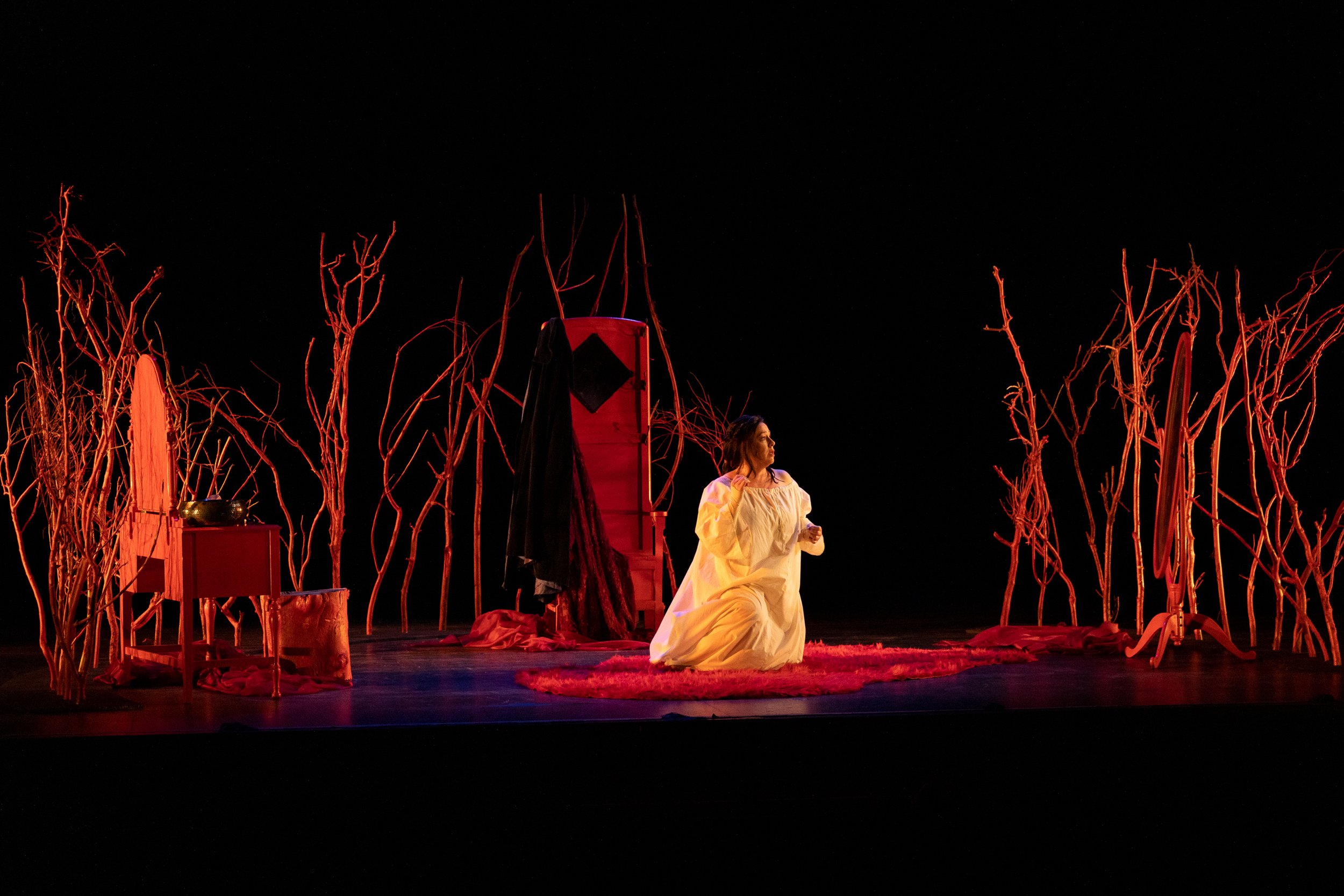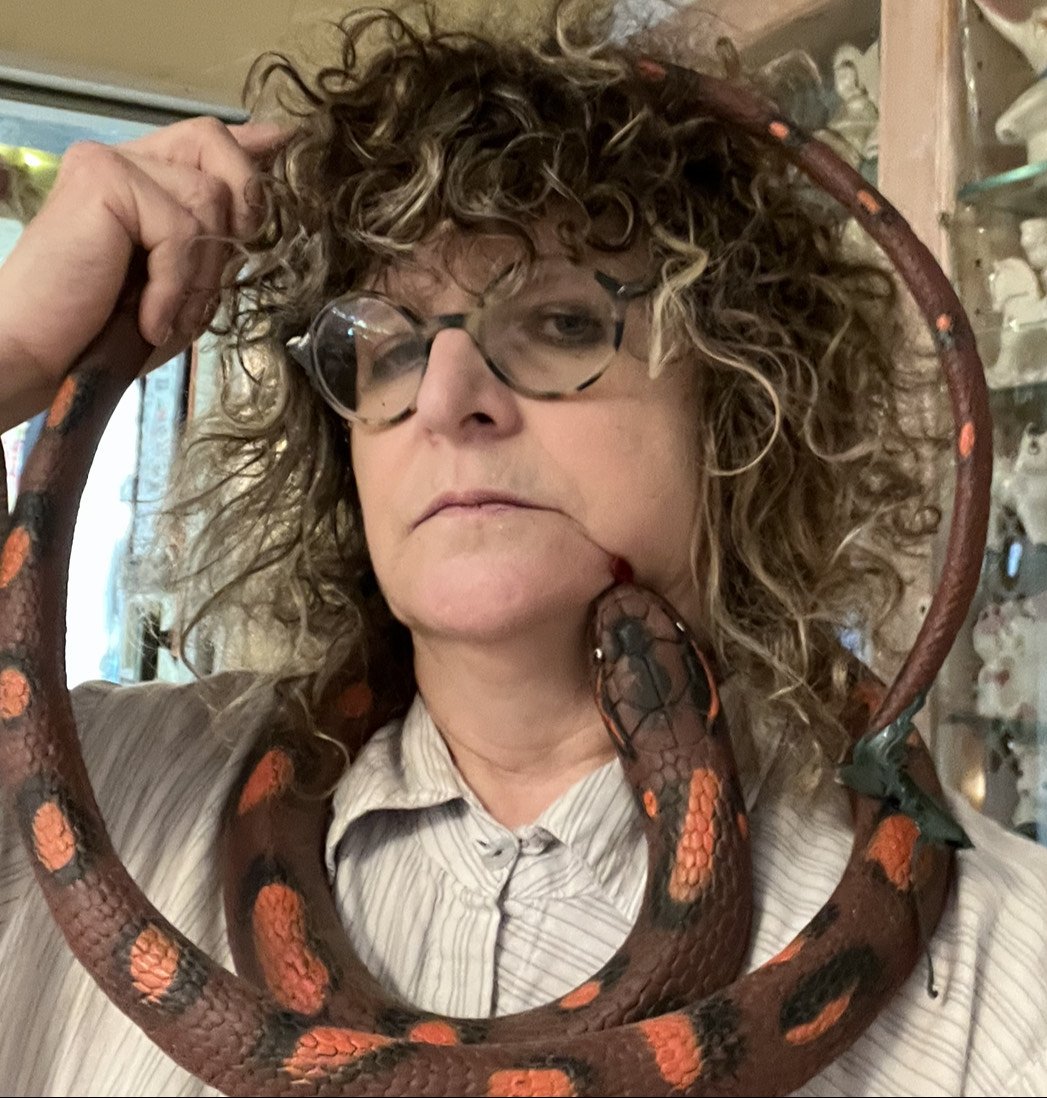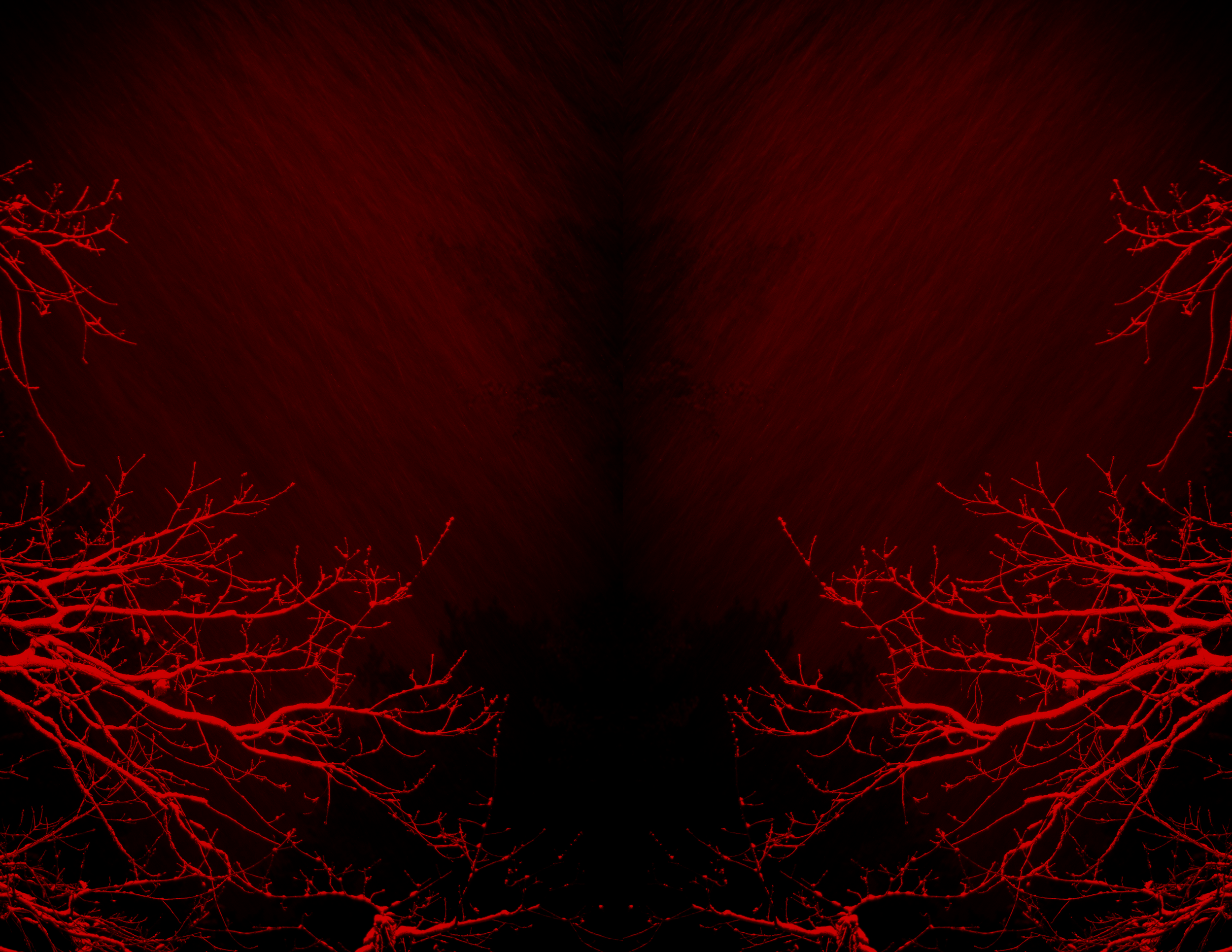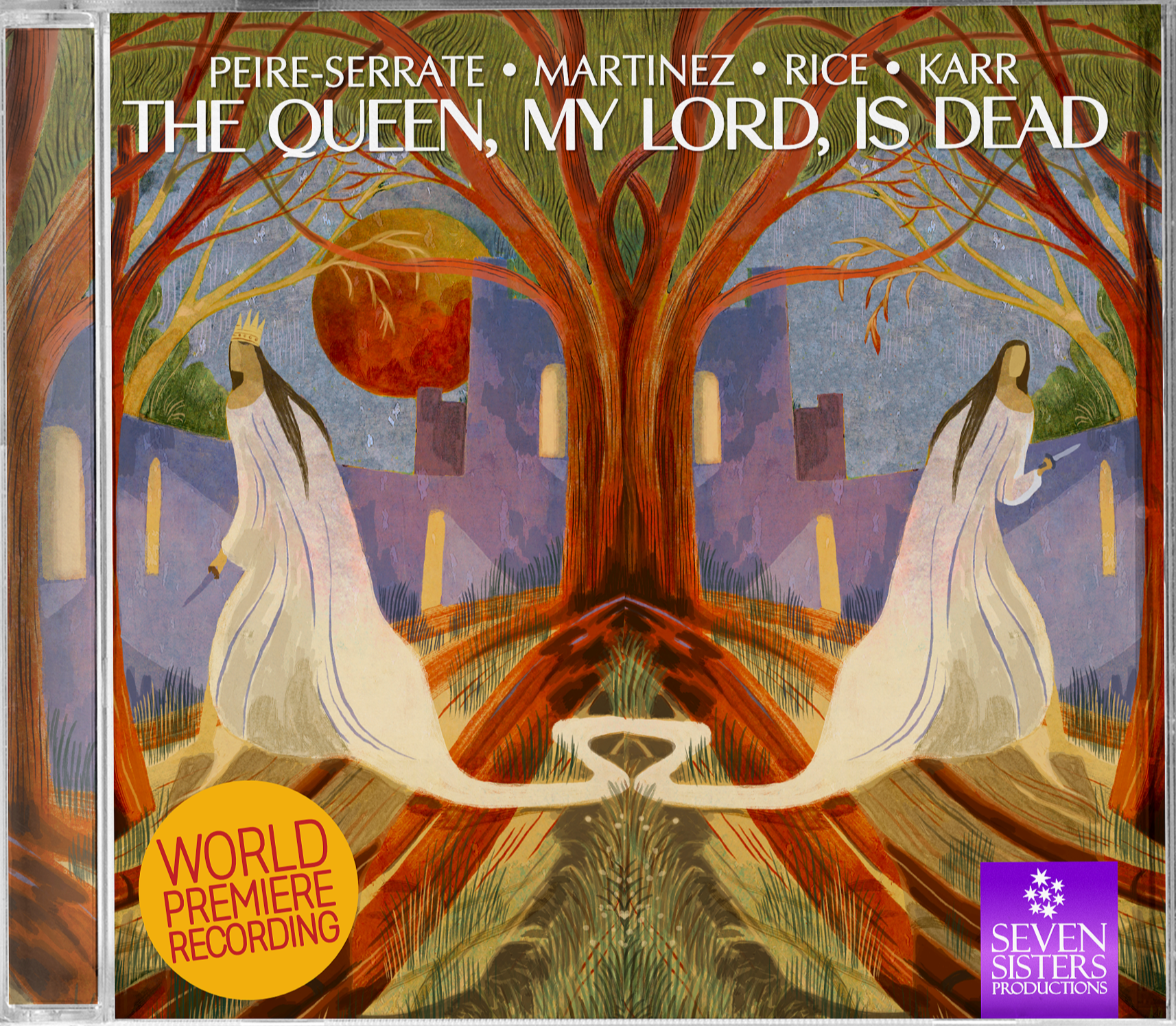The Queen, My Lord, Is Dead
World Premiere
Studio Recording
Purchase CDs from the SSP STORE
Get CDs and Digital Downloads from BANDCAMP
Available on all major streaming services
The Queen, My Lord, Is Dead - World Premiere - June 11, 2022
Schoenberg Hall, Los Angeles, CA
Promotional and behind-the-scenes videos on SSP’s YouTube channel
KING MACBETH AWAITS THE APPROACHING ENEMY FROM THE BATTLEMENTS. HE HEARS TERRIBLE CRIES COMING FROM WITHIN THE CASTLE. HIS SERVANT SEYTON APPROACHES AND REPORTS:
“The Queen, my Lord, is dead.”
With those six words, one of the most electric and enigmatic characters in literature is briefly dispatched, without further explanation. It has always seemed that Lady Macbeth is too big of a character to enjoy only the mere silhouette of a death. So much of her tale is left untold, and Seyton’s six words swell with story and hidden offstage action, compelling us to look into the wings.
We wanted to create a work that would reveal what Shakespeare chose not to show us about the end of Lady Macbeth’s story. This piece is one possible scene that might follow the sleepwalking scene in Shakespeare’s play.
Working with the tremendously talented composer Tomàs Peire-Serrate and librettist Alejandra Villarreal Martinez, we’ve created one possible telling of this seminal character’s last act. Our story is about the character of Lady Macbeth from the world of Shakespeare’s play, and we’ve also expanded the borders of her reality to include elements from the life of the person upon whom Shakespeare’s character was based.
The result is a breathtaking account of Lady Macbeth in the most charged moment of her life, a queen whose race is run, confronting What Comes Next….
Production Photography by Taso Papadakis
SYNOPSIS
King Macbeth’s brief reign is almost at an end. Malcolm’s army amasses on the horizon, and they are eager to avenge former King Duncan’s murder and restore his son to the throne. Alone in her chambers, Gruoch, Macbeth’s wife and consort Queen, contemplates her situation with razor-sharp clarity. She knows now that suicide will offer her an easier and more dignified death than Malcolm will. Though she remains unafraid and determined, she finds that she cannot end her life — something from deep within makes her hesitate. Following the tangled pathways of her mind, Gruoch revisits memories that have been long suppressed, of her own mother, her first husband, and her son. These touchstones of her past life, her life before Macbeth, reveal how much trauma has transformed her over the years. While grieving the loss of the happier woman she once was, she feels the presence of Duncan’s ghost. Gruoch confronts him unapologetically, enraged that he would appear, as if he himself was not also guilty of murder as a means to an end. She dismisses him and turns again to her dilemma, resolving to take control of her fate once and for all….
Production Photography by Taso Papadakis

-

Brandon Baruch
-

Lex Gernon
-

Angela Santori
-

Linda Muggeridge
-

Jose Carrillo
TECHNICAL DIRECTION











